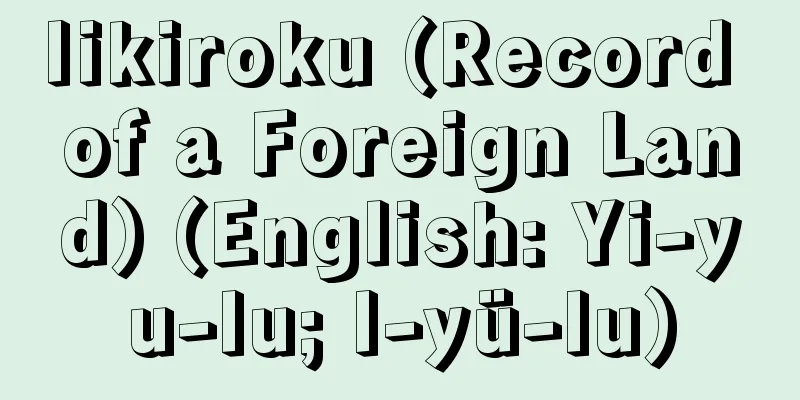Judicial state - Shihokokka

|
Under the principle of separation of powers, it refers to a state that recognizes the superiority of the judiciary, or a state that does not recognize the administrative judicial system. In the former case, the "superiority of the judicial power" is preached in the sense that the court has the power to review unconstitutional legislation and has the authority to review laws enacted by the Diet. The United States is a typical example, and Japan can also be considered a judicial state because the court is given the power to review unconstitutional legislation (the power to review statutes) (Article 81 of the Constitution). In the latter case, it is said that there is no administrative court, and the judicial court has jurisdiction over all cases, including administrative cases. This is typical of countries with an English-American law system, but Japan also belongs to the judicial state type in that the judicial court adjudicates all legal disputes (Article 76 of the Constitution, Article 3 of the Court Act). However, under the Meiji Constitution, an administrative state type was adopted in which administrative courts were established to review only administrative cases under the administrative power, but because there were many areas in which the system and operation were greatly lacking in the protection of human rights, it was changed to the current judicial state type. However, even under the current system, special procedures are permitted for litigation of administrative cases, which gives it characteristics that differ from those of Anglo-American judicial states. [Masaaki Ikeda] [Reference] |Source: Shogakukan Encyclopedia Nipponica About Encyclopedia Nipponica Information | Legend |
|
権力分立主義のもとで、司法に優越的な地位を認める国家、もしくは行政裁判制度を認めない国家をいう。前者の場合は、裁判所が違憲立法審査権をもち、議会の定立した法律を審査する権限をもつという意味で、「司法権の優越」が説かれる。アメリカ合衆国がその典型で、日本も裁判所に違憲立法審査権(法令審査権)が与えられている(憲法81条)から、司法国家とみることができる。後者の場合、行政裁判所をもたず、行政事件を含めていっさいの事件を司法裁判所が管轄する場合にいわれる。その典型は英米法系の諸国にみられるが、日本も司法裁判所がいっさいの法律上の争訟を裁判する(憲法76条、裁判所法3条)点から考えて、司法国家の型に属する。ただし明治憲法下においては、行政権のもとで、行政事件のみを審査する行政裁判所を置くという行政国家型がとられていたが、制度・運営の面で人権保障に大いに欠ける点が多かったので、現行の司法国家型に変えられたのである。しかし、現行制度でも行政事件の訴訟については、特別の手続が認められているから、英米の司法国家とはまた異なった特色をもっている。 [池田政章] [参照項目] |出典 小学館 日本大百科全書(ニッポニカ)日本大百科全書(ニッポニカ)について 情報 | 凡例 |
>>: Independence of the judiciary
Recommend
Security Police - Hoan Keisatsu
Among the functions of restricting the natural fre...
Yamada style
A school of koto music founded by Yamada Kengyo (...
Child play - Shuyu
A disciple of Confucius (Kongqiu). His surname wa...
Rangeln
… [Europe] Europe tends to have the impression th...
Guideway railway - Guideway railway
… [Route] As of the end of March 1996, there were...
Cynodontia
…This group appeared in the late Carboniferous pe...
Astragalus
A general term for marine fishes belonging to the ...
Jasminum officinale (English spelling)
…[Murata Gen]. … *Some of the terminology that me...
ant-hill tiger
…The tip of the tail is black, followed by two or...
Kunitomo
A place name in Sakata County, Omi Province, now N...
Longchin goby (English spelling)
This marine fish belongs to the family Gobiidae o...
Suwa Taisha Shrine
Kamisha and Shimosha are located on the north and...
Sakamukae - Sakamukae
This is a ceremony to celebrate the safe return o...
Mangrove crab
…It is found widely from Tokyo Bay south through ...
Oinone (English spelling)
…At his birth, he was abandoned in Mount Ida beca...









